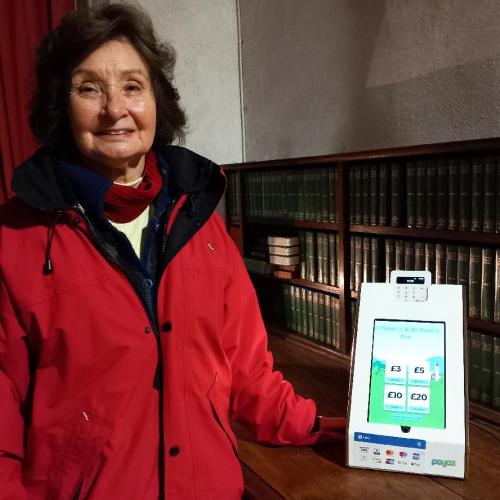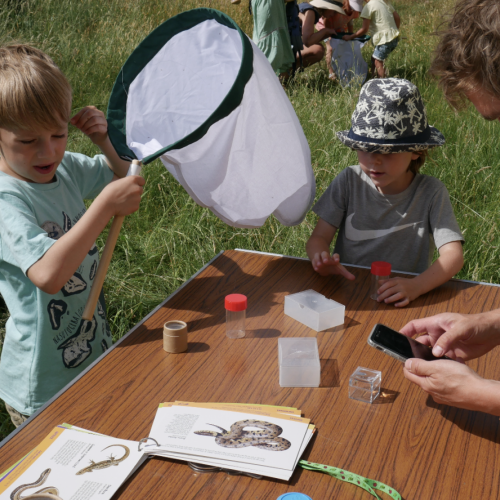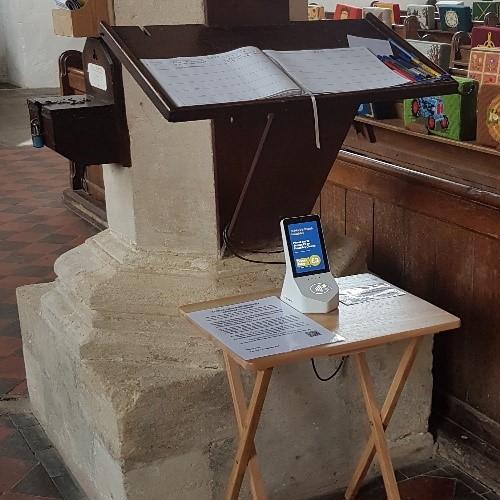A Friends’ Group can engage the wider community who may wish to support the life of the church building.
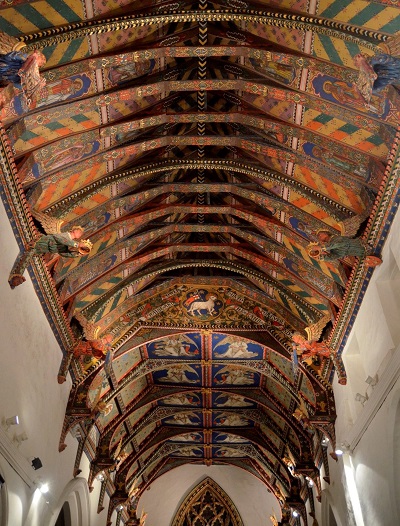 Church buildings are wonderful places and many people in the community are interested in their church for different reasons. Maybe because it is a beautiful building to get married in, because of its history or historic architecture, because of family connections, or people buried in the churchyard. All of these aspects, and many more, make church buildings very special places.
Church buildings are wonderful places and many people in the community are interested in their church for different reasons. Maybe because it is a beautiful building to get married in, because of its history or historic architecture, because of family connections, or people buried in the churchyard. All of these aspects, and many more, make church buildings very special places.
We all know that a church building can be very expensive to maintain and a number of parishes have explored the idea of setting up a Friends’ Group, which can be a way to engage with the wider community while also raising funds for the church. This might attract those who wish to support the life of the church building but may not be regular worshippers. They may be occasional worshippers, have other connections to your church or just live in or visit your parish.
The role of the Friends' Group could be to promote knowledge and understanding of the church, its role in the Christian faith and/or its status within the surrounding community. It may also help raise funds to meet the increasing costs of maintaining church buildings in order to enable it to continue to be a loved and valued part of the community.
How to set up a Friends' Group
It is worth considering several factors when setting up a Friends' Group for your church to make sure that problems are avoided now and in the future. There are two ways to set up a Friends’ Group: inside the Parochial Church Council (PCC) or independent of the PCC.
Option one (recommended) - part of the PCC
We would recommend setting up Friends’ Groups inside and under the PCC’s authority.
- It is the simplest group to establish and operate.
- The Friends’ Group becomes a sub-committee of the PCC and so any financial information must be incorporated into the PCC’s accounts.
- The PCC treasurer should be one of the signatories of the account, and therefore the PCC has direct responsibility and control over the Group's funds.
- The Friends’ Group can organise events and have its own membership list.
- The Friends' Group will report to the PCC.
- The Group will be included under the Charity status of the PCC.
- There will be tax-efficient donations and subscriptions through Gift Aid.
- No separate constitution is required.
- The Group can use the CBF Investment Fund.
- The Group's events and personnel may be covered by the PCC's insurance.
Of course there are some disadvantages: as it is organised and run through the PCC, its officers will have to be on the electoral roll, it has no executive powers and it may not seem separate enough to attract a wider membership. However, the benefits far outweigh this.
Option two - an independent organisation with its own charitable status and constitution
This option may appeal as it is separate from the PCC and may attract a wider audience as its purpose may be perceived as distinct from the religious activity of the church. Nonetheless this option is more complicated than being under the authority of the PCC, as the Group would lose some of the benefits of being part of the PCC. In particular:
- It would need to register as a separate charity with the Charity Commission.
- It requires its own constitution, AGM and officers.
- It would have control over funds (and reporting, bank accounts, accounting etc).
- Committee members are the trustees and must take on the responsibilities of trusteeship.
- Activities will need to be insured separately.
- Provision for ex officio members is necessary to ensure some element of PCC representation.
- It takes longer to establish.
Getting started
1. The PPC makes a formal decision to establish a Friends’ Group
Things to consider:
- Please don’t underestimate the workload in setting up and running a Friends’ Group.
- Ensure you are able to attract new people to the group who have a real contribution to offer. Focus on this being different people to those already responsible for most of the life of the Church, though some may also wish to join.
- The events organised by the Friends should not be an additional burden on the church family, and care needs to be exercised that there is no expectation that the priest and his/her family will attend absolutely everything that goes on!
- The Friends’ Group should not apply for grants/funding; this is done in the name of the PCC. All payments to contractors are also made by the PCC.
2. Set up the Aim and Objectives
These need to be made very clear at the outset and enshrined in the founding documents (either a 'Terms of Reference', if remaining under PCC control, or a constitution if being set up as a separate charity). Things to consider:
- It must be clear that the church building exists for the practice and advancement of the Christian religion.
- It must also be clear that the care, maintenance, repair and insurance of the church remains the responsibility of the PCC and all work done to the church is still subject to faculty jurisdiction.
- Members of the worshipping community may wish to join the Friends' Group but their primary contribution to the work of the church should be through regular giving (Parish Giving Scheme) to general funds to contribute to the day-to-day costs of the parish.
- The Friends' Group may have fundraising as a goal but this is not for general funds or the 'housekeeping' of the church.
- The Friends' Group may have a goal to promote knowledge and understanding of the church, its role in the Christian faith and the development of the community around it.
- Friends might become involved in guiding and interpretive work for visitors, and in publicity in attracting tourists to visit the church.
- Whatever its precise role, the Friends' Group must be capable of drawing in additional people and support than might otherwise be the available. If they do not, or cannot, there is little reason for its existence.
 |
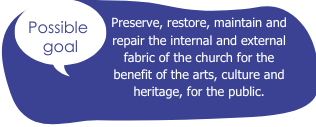 |
Recruiting Friends and Membership
- Individuals of standing in the surrounding community
- Local residents living near the church or in the parish
- Visitors to the church and graveyard
- Relations of residents who have moved away, eg. adult children whose parents are part of the church family
- One-time members of the church family who have moved away
- Members of local societies with an interest in history
- Organisations linked to any person or interest connected with the church
- Local businesses.
What do members get out of joining a Friends' Group?
- Need to create that warm feeling of actively contributing to a valuable part of their heritage and belonging to the local community
- Members should receive some type of gift, eg. bookmark, pamphlet about the church on joining
- Regular communication (events in church and what funds are being used for) by a regular newsletter and/or invitations to Friends events, eg. music event, Patronal Festival and dinner, tea on church meadow.
- Access to a website may supplement a newsletter.
Further Information
- More detailed notes on Friends’ Groups can be found on the Parish Resources website.
- Ely diocese have worked with Cambridge University and others to help produce a booklet on setting up a Friends' Group which you may find helpful. You can find it here.
- Growing the Rural Church guide on setting up a Friends' group with a sample of terms of reference for a Friends' group as a sub-committee of the PCC.
- The National Churches Trust's advice and toolkit for Friends' Groups is available here.
- Charity Commission: advice on starting up a charity, including model governing documents if you think that your Friends’ Group will have an income of more than £5000 per year or will be established as a charitable incorporated organisation.
